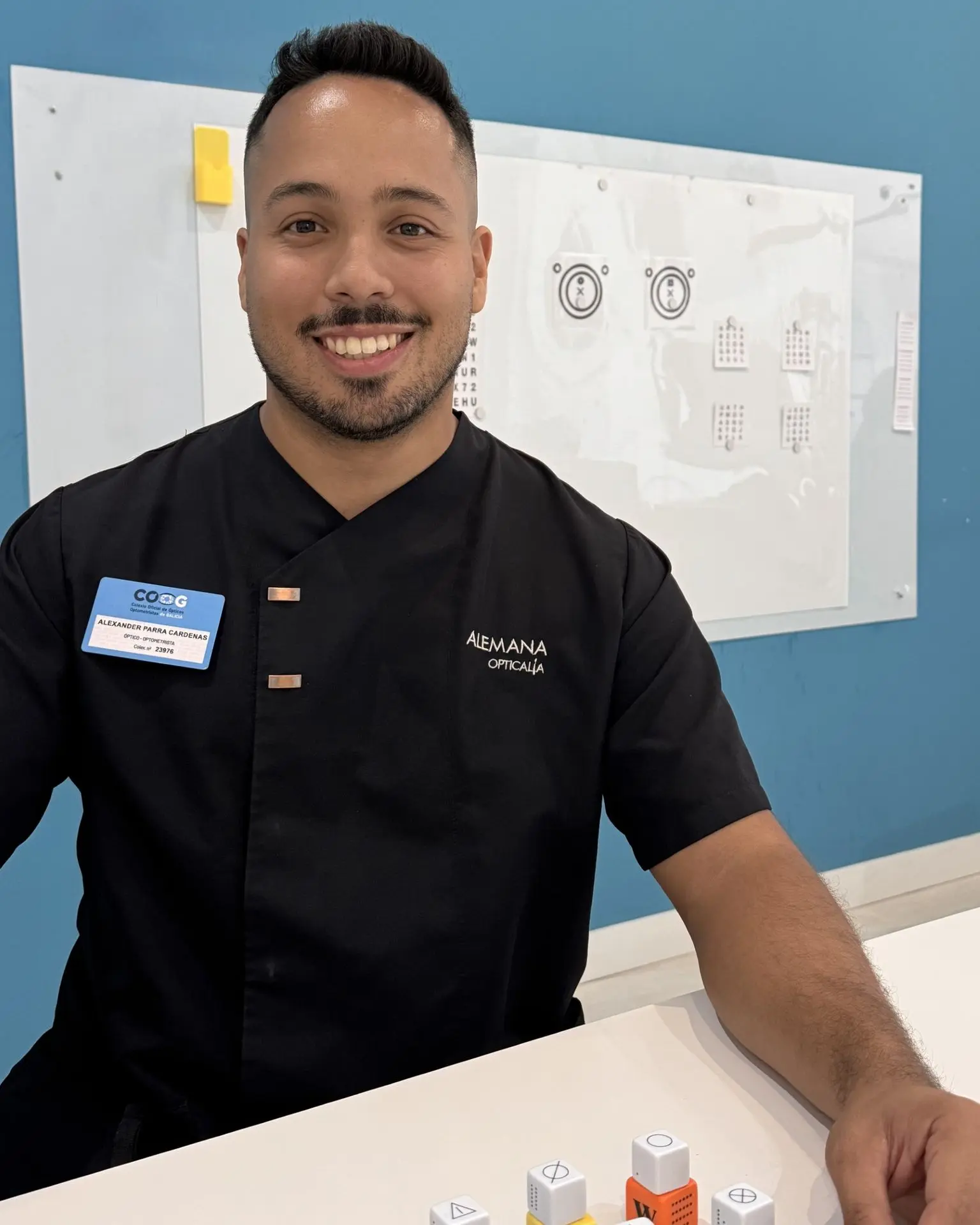
Alexander Parra, optometrista comprometido con la mejora continua, comparte su experiencia en el proceso de certificación como Socio Clínico de SIODERV. Un recorrido que, más allá del reconocimiento, le ha permitido replantearse su práctica, integrar nuevas perspectivas y reafirmar su vocación por la rehabilitación visual.
What motivated you to start this process towards the Clinical Partner certification at SIODERV?
The ability to give visibility to the patients of the ongoing training we have is key to ensuring good service and providing more confidence in the work we do. I also took the Clinical Partner process as a challenge to defend the work I do every day.
What has been your professional career in the optical-optometry sector?
Since I graduated, I have worked at the same optical shop. At first, I wasn't sure which optometric specialty would interest me the most. I tried contactology, but it didn't personally fulfill me, so I tried Visual Therapy. I discovered a window of different opportunities to help many people. Now I dedicate almost all of my time to visual rehabilitation and the diagnosis of the various visual dysfunctions that exist.
What would you highlight about your personal experience during this certification process?
This process has been a journey of pure learning; revisiting a case and seeing it from a different perspective helps us think differently. In this way, it also enables us to plan differently in new cases and even to innovate in some procedures or ways of acting.
"Seeing a case from another perspective helps to think differently and to innovate in clinical practice"
Have you integrated any learning from this process into your daily professional practice?
Of course. The observations provided by the correction team are always positive and make you think differently when approaching new cases.
What does it mean to you to be part of SIODERV?
Being part of such a large society makes us more united on a professional level. For me, it is important to speak the same language as my colleagues in the profession; being able to share ideas, resources, evidence, or procedures without fear helps us grow as professionals.
Did your expectations regarding this process get met? What aspects would you improve?
Yes, the expectations were met. I think that, to point out a drawback, we would learn more if the correction were done in the form of a debate about the case with the correctors. I know that anonymity would be lost, but I believe that a conversation about the case would put us in an unusual situation; many times we can learn from it and come up with ideas that we wouldn't normally think of.
Would you recommend other professionals go through this certification process?
Yes, it's not something that takes up much of your time. Learning about something you've already done is always good.
Have you attended a SIODERV Congress before? What are your expectations and what has encouraged you to attend this edition?
I have only attended the last conference. I liked it so much that I don't plan to miss any of the future conferences. I expect many interesting presentations, the pre-conference courses seem like a great idea to me, and I hope to enjoy it as much as the last one.
